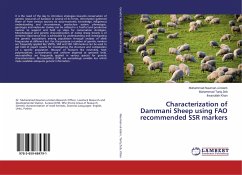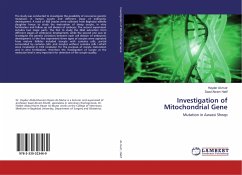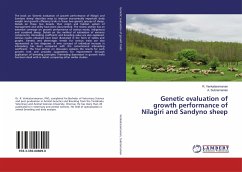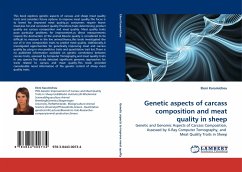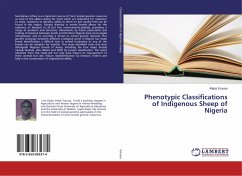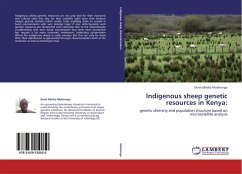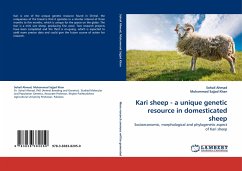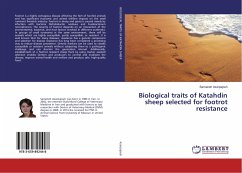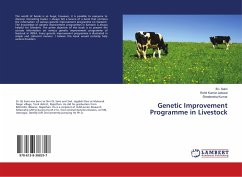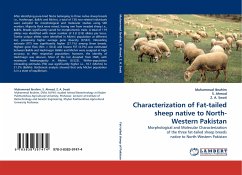
Characterization of Fat-tailed sheep native to North-Western Pakistan
Morphological and Molecular Characterization of the three fat-tailed sheep breeds native to North-Western Pakistan
Versandkostenfrei!
Versandfertig in 6-10 Tagen
39,99 €
inkl. MwSt.

PAYBACK Punkte
20 °P sammeln!
After identifying pure-bred flocks belonging to three native sheep breeds i.e., Hashtnagri, Balkhi and Michni, a total of 138 non-related individuals were sampled for morphological and molecular studies using SSR markers. Majority flock were mixed, having ram from invaded sheep i.e., Balkhi. Breeds significantly varied for morphometric traits. A total of 119 alleles was identified with mean number of 3.8 (2-8) alleles per locus. Twelve unique alleles were identified in Michni population at different loci, possessing higher average gene diversity (0.561). Inbreeding estimate (FIT) was significa...
After identifying pure-bred flocks belonging to three native sheep breeds i.e., Hashtnagri, Balkhi and Michni, a total of 138 non-related individuals were sampled for morphological and molecular studies using SSR markers. Majority flock were mixed, having ram from invaded sheep i.e., Balkhi. Breeds significantly varied for morphometric traits. A total of 119 alleles was identified with mean number of 3.8 (2-8) alleles per locus. Twelve unique alleles were identified in Michni population at different loci, possessing higher average gene diversity (0.561). Inbreeding estimate (FIT) was significantly higher (27.1%) among three breeds. Highest gene flow (Nm = 60.4) and lowest FST (4.3%) was estimated between Balkhi and Hashtnagri. Balkhi and Michni were assigned at high accuracy to their respective population; however, the identity of Hashtnagri was obscure. Most of the loci deviated from HWE, with maximum heterozygosity in Michni (0.522). Within-population inbreeding estimates (FIS)was significantly higher i.e., 10.1 (Michni) to 31.3% (Balkhi). Bottleneck analysis showed that only Michni population is in a state of equilibrium.



